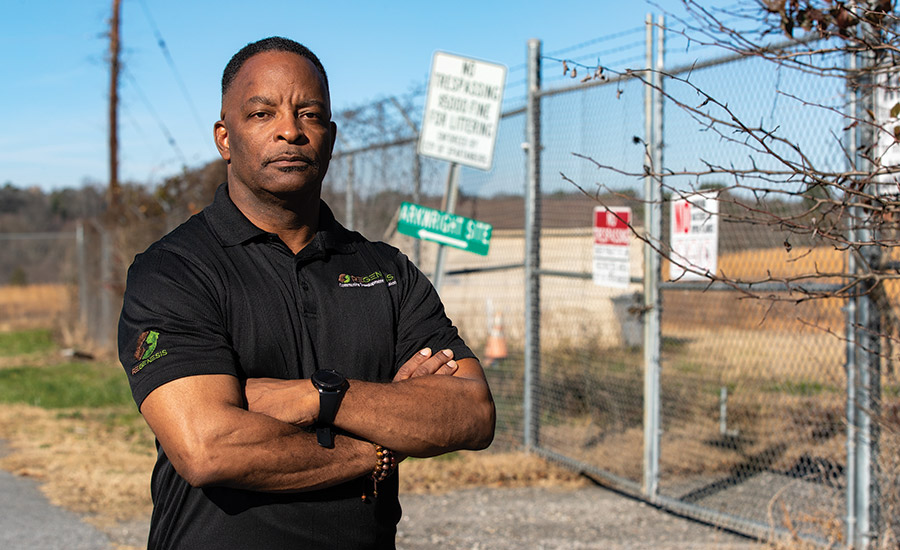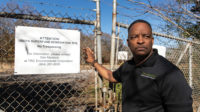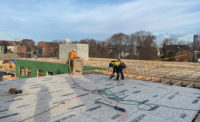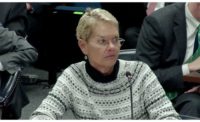When the clock struck midnight, ringing in New Year’s Day 2022, it signaled a heartrending moment for Harold Mitchell Jr.—the anniversary of his father’s death from lymphoma. That loss 25 years ago also marked the beginning of a personal journey—one that ultimately led to a community-based cleanup, redevelopment and revitalization project that today serves as a model of success in the environmental justice movement.
Mitchell, founder of the non-profit ReGenesis Community Development Corp., grew up directly across the street from a fertilizer plant in the Arkwright neighborhood of Spartanburg, S.C. While in his 20s, he experienced mysterious health problems. Around that time, his father was diagnosed with terminal cancer.
Mitchell learned that others in the community were also experiencing unusual and numerous instances of health problems as well. He began asking questions and engaging with politicians, agencies and environmental groups. Those efforts led to EPA investigations in the area, which detected 70 contaminants, with 30 of those at levels three times above maximum contamination at the fertilizer plant and a nearby landfill. Both were designated as Superfund sites. Six brownfield sites were also identified.
Related Article:
Righting Past Wrongs Through Equitable Development
Back to:
25 Top Newsmakers
The community had previously been told that the plant was designated a “clean closure” when it shuttered in the 1980s and the landfill “didn’t exist,” he says. “We didn’t get the same treatment as the gated community on the other side of town would have gotten. We just want equity.”
As Mitchell became more engaged in the environmental justice movement, he began to see connections between his community’s environmental concerns and other socioeconomic issues.
In his community, which was 96% African American, according to the 2000 U.S. Census, about 25% of the population lived under the poverty line. Crime was high and many industrial, commercial and residential properties sat abandoned.
Since founding ReGenesis in 2000, Mitchell has brought together resources from federal, state and private stakeholders to leverage nearly $300 million in investments. Those funds helped bring health clinics, new roads, a community center and hundreds of new affordable homes, including Section 8 housing.
ReGenesis now is negotiating a solar power purchasing agreement with Duke Energy, which could develop a 3.5-MW solar array on the former landfill site. As part of the agreement, community residents would benefit from lower energy costs for 25 years. Other projects include a future aquaponics facility and a science, technology, engineering and math school.
Although government agencies and other stakeholders provided the money, Mitchell and fellow community members were the driving force, says Mustafa Ali, vice president of environmental justice, climate, and community revitalization at the National Wildlife Federation and a founding member of the US Environmental Protection Agency's Office of Environmental Justice. “The ReGenesis project is one of the most successful environmental justice projects, especially because it’s community driven,” he adds.





Post a comment to this article
Report Abusive Comment